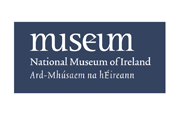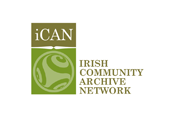Found in the The Yorkshire Herald and the York Herald YORK, NORTH YORKSHIRE, ENGLAND Tuesday, January 21, 1896
THE LATE MR. JAMES HACK TUKE.
James Hack Tuke, whose death, at the age of 76, we announced last week, was a partner in the firm of Messrs. Sharples and Co, bankers, Hitchin. He came of a family which for four generations had been settled as merchants at York, and were prominent members of the Society of Friends. Many of them, and in particular his brother, the late Daniel Hack Tuke, M.D, have been well known for the value and success of their work for the benefit of the insane; and the York Retreat, where the humane treatment of insanity was first introduced, was due in its foundation to his great-grandfather. Mr. Tuke took an early interest in work for the benefit of the sufferers from the great famine of 1846-7 in Ireland, and himself suffered from a fever which he caught in visiting the sheds his father had provided as shelter for starving Irish who sought refuge in York, In the company of Mr. W. Forster and his son, Mr. W. E. Forster, he visited Ireland, and on three occasions traversed the poorer districts of the North and West, making arrangements for the distribution of the funds provided by the relief committee of the Society of Friends in England. His next philanthropic work which attracted public attention was his visit for a similar purpose to Paris immediately on the termination of the siege in January, 1871, on which occasion he continued, with others, engaged in the work of mercy, at great personal risk, Curing the commencement of the war of the Commune. But it was in 1880 that the great work of his life commenced-his systematic attempts to relieve the chronic poverty of the congested districts of the West of Ireland. The first of these was the distribution, as before in 1817, of relief to the starving during the period of exceptional distress in 1880. This experience led him to consider what steps might be taken for more permanent improvement of the condition of the people; and was followed by a visit to America, where he examined the prospects of assisted emigration. In the spring of 1882 he started the Tuke Fund Committee for this purpose, under the presidency of the Duke of Bedford, and with Mr. W. H. Smith for chairman As a result of their exertions, extending over three years, nearly 10,000 Irish were settled, by families, in suitable districts; and a sum of £24,000, to which £44,000 was added by the Government, was collected and expended under Mr. Tuke’s personal supervision. In 1886, at the request of Mr. Morley, Mr. Tuke undertook the laborious task of distributing seed potatoes in the Island of Achill and some portions of Mayo, the funds for the work being actually provided by private subscriptions of his own collection. The suggestions made in his reports of this work, and in pamphlets published after further repeated visits to the district, were adopted by Mr. Balfour in preparing his Bills for the promotion of light railways and for the establishment of the Congested Districts Board, by which fisheries, industries, and agriculture receive sympathetic aid and encouragement. It was a singularly honourable tribute that was paid to him, that at a time when Englishmen were, perhaps, more sharply divided in opinion, upon au Irish question, than any other during the century, the man who was in confidential relations, for purposes of legislation, with the Irish Secretary of the day could be spoken of by his rival and predecessor as “the only man who has helped us.”
Upon this Board Mr. Tuke accepted, at Mr. Balfour’s invitation, one of the unpaid seats, and was a regular attendant at its monthly meetings so long as his health would permit. Mr. Tuke was a frequent contributor to the correspondence columns of The Times, especially on the subject of the economic condition of Ireland. Mr. Tuke was twice married-first to Elizabeth Janson, who died in 1869, by whom he leaves a family; and secondly, in 1882, to Georgina Mary, daughter of Dr. George Kennedy, of Belgard, county Dublin, The charm of his character and conversation, to those who came in contact with him, was as notable as the acts of wisdom and far-sighted beneficence which constitute his public claim to veneration on both sides of the Irish Channel.









Comments about this page
Would it be possible for someone to type up the text so one can read it?
Add a comment about this page